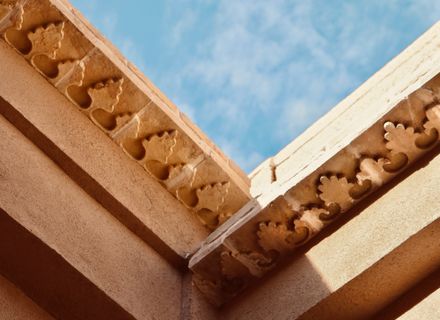
Safa House Restoration
ARCHITECTS
Torab Home
LEAD ARCHITECT
S.Hadi Razavi
PROJECT MANAGER
Mohammad Hossein Dehghani
EXECUTIVE DIRECTOR
Hani Shayegh
GRAPHIC DESIGNER
Mina Abouei
ARCHITECTURAL STUDIES
Maryam Heydari
CONSTRUCTION SURVEY
S.Javad Asi Alavi , Mehdi Rafipour
REVITALIZATION PLAN
S.Hadi Razavi
REVITALIZATION ASIST
Maryam Heydari
IN PLACE DESIGN
S.Hadi Razavi, Zahra Abouei
SUPREME SUPERVISOR
Hossein Kamali Ardakani
WORKSHOP SUPERVISOR
Zahra Abouei
3 D MODELLING
Mohammad Morshed
RESTORATION ARCHITECT
Mohammad Hossein Dehghani, Hani Shayegh, Maryam Heydari
AS BUILT SURVEY
Farzaneh Shirmohammadi, Ensieh Saleh rad
PRINCIPAL/ SENIOR PROJECT MANAGER
S.Hadi Razavi
MANUFACTURERS
Gel Kheteh
PHOTOGRAPHS
Mina Abouei
AREA
170 m²
YEAR
2020
LOCATION
Yazd, Iran
CATEGORY
Houses, Restoration, Heritage
In the historic district of Yazd City, the Safa House, situated in the Amir Chakhmaq neighborhood, was assigned to the Torab Home Company as a restoration project.
A house segment suffered significant damage, and various sections underwent physical transformations over time.
Within the design department at Torab Home, we endeavored to craft a design that not only caters to contemporary living requirements but also fortifies the residential environment and elevates the cultural ambiance of the vicinity.
The house's strategic location is noteworthy as it is within the global registration area of Yazd City, in close proximity to key urban landmarks like Amir Chakhmaq Takiye and the New Jame Mosque.
Consequently, factors such as preserving the coherence of the historical setting dictated the use of traditional construction materials and techniques throughout the design and construction processes.
Only in areas entirely demolished, based on available documentation (the earliest aerial photo of Yazd city dating back to 1955), did we employ a creative and harmonious redesign with the original structure of the house.
Upon completing the design phase and initiating the execution workshop, workshop conditions, including issues in the northern part of the house and the imperative to preserve the integrity of the original staircase, surfaced.
The revelation that the entrance door had been destroyed and the rooms had deviated from their original configuration over time fostered collaboration between the design and execution teams.
This iterative process resulted in a more comprehensive and refined design.
Overall, the primary objective of this plan was to conserve and faithfully represent the values inherent in the historical Yazd context.
Notable among these values are the house's integration into its historical surroundings, its adjacency to residences where the rhythm of life remains uninterrupted, the incorporation of a sunken courtyard pattern, and the maintenance of its distinctive proportions.
































